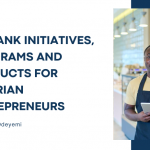The Small and Medium Enterprises Development Agency of Nigeria (SMEDAN), has proposed the establishment of D-8 centre on Small and Medium Enterprises (SMEs) in Nigeria.
Mr Olawale Fasanya, the Director-General of SMEDAN made the proposal at the D-8 Forum on SMEs and health market held in Abuja on Wednesday.
The event is based on the theme: “A Coalition to Re-invent SMEs Competitiveness in the D-8 Region: Addressing the Challenges Faced by SMEs with Special Focus on Health Market’’ was organised by the Ministry of Foreign Affairs in collaboration with SMEDAN and D-8HSP Programme Office.
The D-8 Organisation for Economic Corperation also known as Developing-8, is an organisation for development co-operation among Bangladesh, Egypt, Indonesia, Iran, Malaysia, Nigeria, Pakistan and Turkey.
Fasanya said that the centre would promote, encourage, advance and support the activities of MSMEs at the national level.
“The establishment of the D-8 Centre on SMEs will unleash substantial development impacts, synergies between and among the D-8 member states and relevant national agencies and authorities,’’ he said.
According to him, the centre would host symposiums, fairs, conferences, seminars, and gatherings of SME operators to help promote and coordinate the implementation of SME development projects throughout the D-8 region.
Fasanya continued by saying that the center would examine policies, put them into action, and aid SMEs in developing their capacity.
SMEDAN’s Executive Director expressed concern about how contemporary global issues, many of which are connected to socioeconomic and political changes, were affecting the activities of SMEs.
He claimed that developing countries were more affected than any industrialized countries were.
“The protracted war between Russia and Ukraine has further compounded the challenges of the Micro, Small and Medium Enterprises (MSMEs) sub-sector in Nigeria.
“I am sure the case is not too different in other D-8 member states,’’ Fasanya said.
He further expressed concern that high cost of production experienced by most MSMEs in Nigeria further reduced their ability to be globally competitive.
“The use of technology has made access to markets borderless with significant negative impact on our local MSMEs. They are not just confronted with the issues of high cost of production but also reduced access to competitive markets,’’ he said.
Recalling that there was a drop of more than two million MSMEs in 2020, Fasanya said there could be further decrease as new emerging global issues arise.
“The impact of a decreasing MSMEs sub-sector is a dwindling Gross Domestic Product (GDP), increased insecurity, high rate of unemployment and several other social vices, especially among the youth population.
“Globally, the MSMEs sub-sector plays major role in job creation, wealth distribution, resource utilisation and contributions to national GDP.
“As emerging economies, the MSMEs hold the key to development in all the D8 member states as in other developed economies.
“It therefore, implies that a well-developed MSMEs sub-sector and integration among D-8 Member States will add value to cardinal objective of the establishment of the organisation.
“This is with a focus on economic integration among members while also achieving the Sustainable Development Goals (SDGs),’’ he said.
Fasanya added that a significant share of MSMEs in most developing nations had scant or no financial resources and faced formidable obstacles when trying to access financial institutions for startup businesses.
“This financial challenge is particularly affecting entrepreneurs among rural women and other socially disadvantaged groups.
“The development of SMEs is therefore, crucial to the “Leaving No One Behind” Principle, central to the 2030 Agenda,’’ he said.
Amb. Isiaka Imam, thebSecretary-General D-8 Organisation for Economic Cooperation, said that SMEs must be strengthened with great capacity to grow the economy rapidly.
He asserts that SMEs must also be climate change resistant.
As a result, we must give them the tools they need to accelerate and scale up climate action.
According to him, SMEs will produce 70% of all jobs in 2030, when there would be a need for 600 million jobs worldwide.
According to the Turkish ambassador to Nigeria, Mr. Hidayet Bayraktar, the COVID-19 epidemic was a wake-up call for the D-8 member nations.
But he added that SMEs were optimistic about future growth despite experiencing previously unheard-of economic disruptions in the wake of the COVID-19 outbreak.










